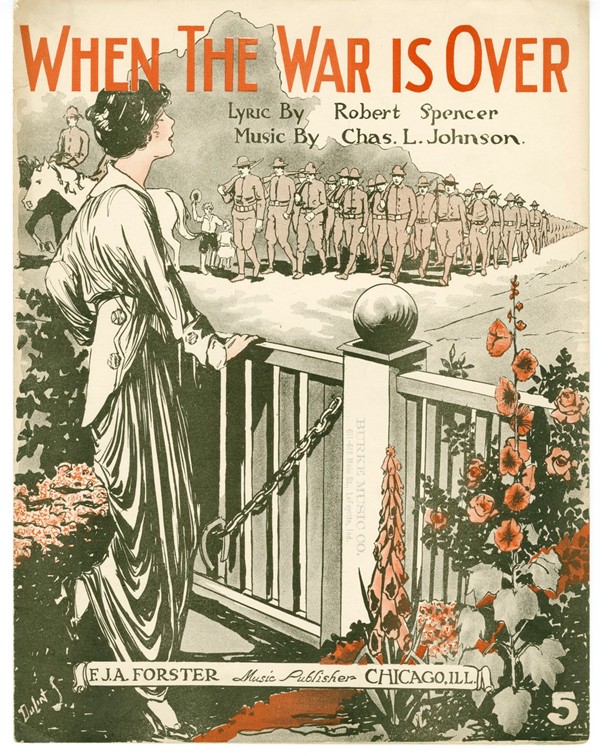
The impact of war on music extended beyond the war itself
The war did not just affect the musicians who fought in it, but also those who began to establish careers after the end of the First World War. A good example of this is Gerald Finzi. Born in 1901, Finzi was too young to fight in the trenches, and ill health suffered in the intervening years meant he was unfit for service at the outbreak of the Second World War. Finzi studied privately with the composer and organist Ernest Farrar, of whom the young composer became very fond, and it unsurprising that he was greatly saddened to hear of Farrar’s death at the front in September 1918, weeks before the signing of the Armistice on 11th November. The war left Finzi with an acute awareness of the fragility and brevity of life and took solace in the poetry of Thomas Hardy, setting more of his poems to music than any other poet. His music is often autumnal and elegiac in nature, taking its inspiration from the English countryside as his orchestral tone poem A Severn Rhapsody shows well. His appreciation for the preciousness of life is best represented in his spectacular cantata Dies Natalis in which he sets words by Thomas Traherne extoling the innocence of a new-born child’s perspective on the world. This work would have launched his career as a composer had its original, prominent premiere at the Three Choirs Festival in September 1939 gone ahead. The outbreak of war put paid to these plans and the work received a low profile performance later that year. He continued to write music, however his next big premiere came too late. His turbulent Cello Concerto was given at the Cheltenham Festival in 1955. By this time Finzi knew he was terminally ill. He died in September 1956. Finzi founded an amateur string orchestra, the Newbury String Players, which offered guest places for instrumentalists from the RCM to gain some playing experience, and no doubt provide relief from London, a city still coming to terms with the aftermath of another war. The group also attracted the attention of Finzi’s close friend Robin Milford (their music clearly being inspirational to one another) who was encouraged to write pieces for the group.
For many composers the Second World War put a temporary stop to their composing activities, yet it did not altogether put a stop to their musical activities. Finzi’s close friend the Belfast born composer Howard Ferguson, along with the pianist Myra Hess, helped to organise the hugely popular lunchtime recital concerts at the National Galley, which ran from October 1939 through to April 1946. The concerts provided cultural relief for war weary Londoners, being deprived of paintings when they had been removed from the gallery for the duration of the war. The concerts were hugely successful, bringing classical music to audiences that would normally be priced out of the concert halls. With 750,000 people coming to hear the concerts, a campaign was set up to keep the concerts going. The war put Finzi in a position to acquire manuscripts and bring together numerous performing editions of works by forgotten composers of the English baroque such as John Stanley and William Boyce and to see them through the press, encouraging further work to be undertaken in the following years, bringing their music to an appreciative musical audience.
Following the events of the First World War, English music turned from the regal majesty of Elgar and Parry to take on a much more pastoral, and I would argue, patriotic quality, influenced by Vaughan-Williams who inspired the work of his later pupils. It would be wrong to cast composers such as Gurney, Finzi and Milford into the background as their music, inspired by the surroundings and poetry of home, conveys their love of England in a subtle manner more patriotic than the music their predecessors. Of course there are exceptions, while the music of William Walton and Benjamin Britten are still heard regularly today, the music of the pastoral composers has taken a backseat in the face of modern trends in atonality, formalism and minimalism that they chose to leave to others. Consequently it seems that we have a ghost era in English music that only now is beginning to be explored, and the music of composers whose careers disrupted through no fault of their own is beginning to receive the reputation it deserves.